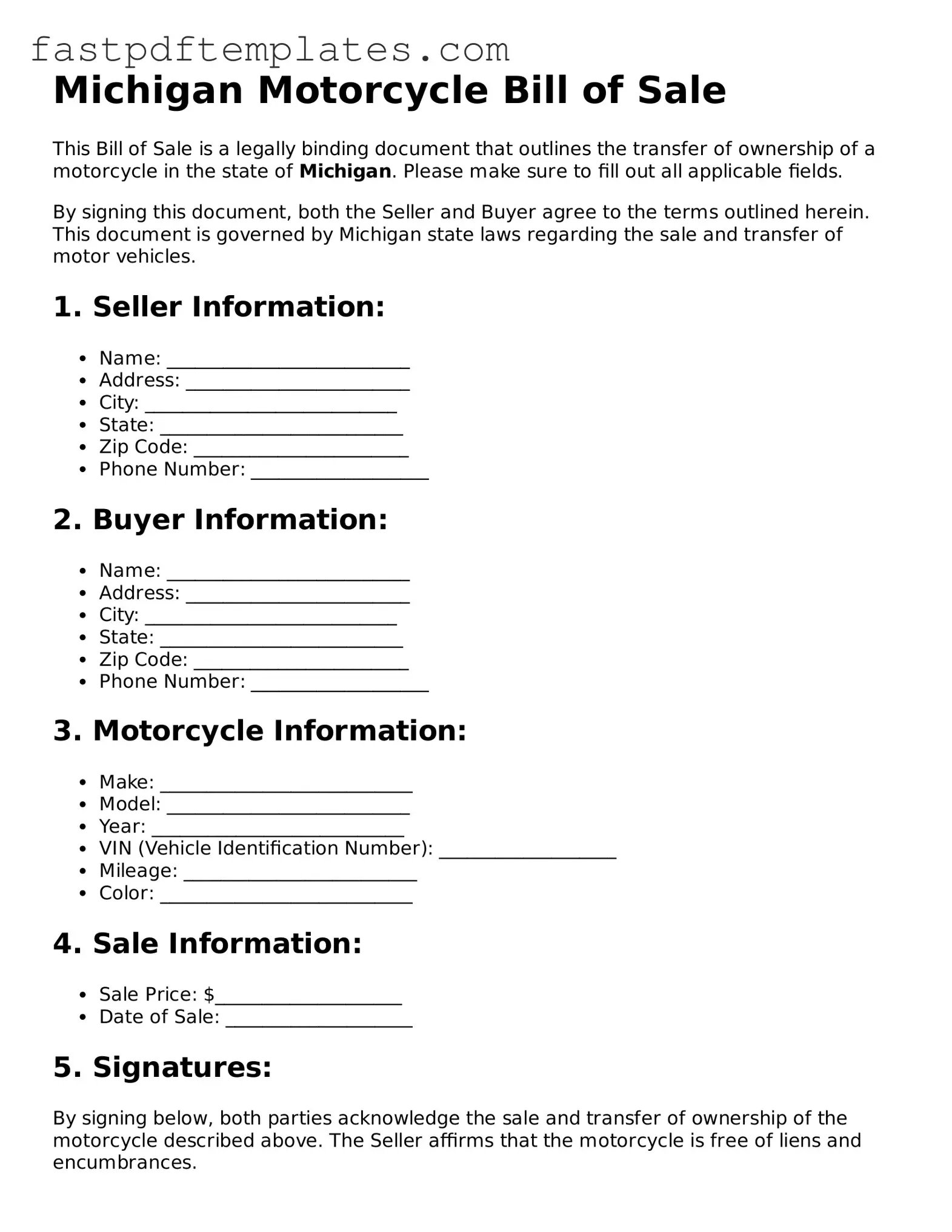Attorney-Approved Michigan Motorcycle Bill of Sale Document
The Michigan Motorcycle Bill of Sale form is a legal document used to record the sale of a motorcycle between a buyer and a seller. This form serves as proof of ownership transfer and includes essential details about the transaction. Understanding its components can simplify the buying and selling process for motorcycle enthusiasts in Michigan.
Access Document

Attorney-Approved Michigan Motorcycle Bill of Sale Document
Access Document
Your form still needs completion
Complete your Motorcycle Bill of Sale online and download the final PDF.
Access Document
or
Click for PDF Form
